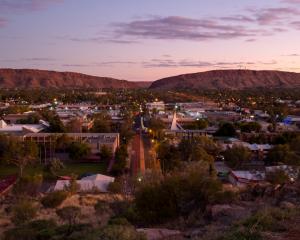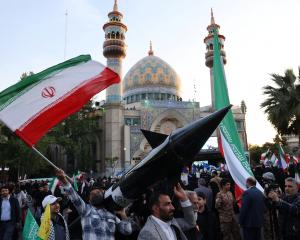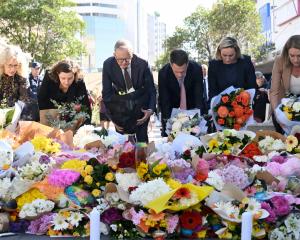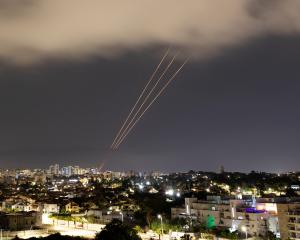Youths threw petrol bombs and shot fireworks at the outer wall of Mursi's Cairo presidential compound as night fell, and police responded by firing water cannon and tear gas.
The head of Egypt's ambulance service said 54 people had been wounded across the country, mostly in Cairo, although there were no reports of deaths by evening.
The renewed demonstrations brought an end to a few days of calm after the deadliest week of Mursi's seven months in power. Protests marking the second anniversary of the uprising that toppled autocrat Hosni Mubarak have killed nearly 60 people since Jan. 25, prompting the head of the army to warn this week that the state was on the verge of collapse.
With multi-coloured fireworks bouncing off their shields and bursting among them, helmeted and baton-wielding riot police chased protesters at the palace and set their tents ablaze. Petrol bombs briefly set fire to a building inside the compound.
The head of the Republican Guard, which protects the palace, condemned what he described as attempts to climb the compound walls and storm a gate. In a statement to the state news agency, he urged protesters to keep their demonstration peaceful.
Earlier, men dressed in mourning black marched through the Suez Canal city of Port Said, scene of the worst bloodshed of the past nine days, chanting and shaking their fists.
"There is no God but God and Mohamed Mursi is the enemy of God," they chanted. Brandishing portraits of those killed in recent days, they shouted: "We will die like they did, to get justice!"
There were also scuffles earlier near Cairo's central Tahrir Square, where police fired teargas at stone-throwing youths. In Alexandria, protesters blocked roads, staged a sit-in on the railway and tried to break into the TV and radio building.
The protesters accuse Mursi of betraying the spirit of the revolution by concentrating too much power in his own hands and those of his Muslim Brotherhood. The Brotherhood accuses the opposition of trying to overthrow the first democratically elected leader in Egypt's 5,000-year history.
Mohamed Ahmed, 26, protesting at the presidential palace, said: "I am here because I want my rights, the ones the revolution called for and which were never achieved."
For the Port Said marchers, Friday was also the first anniversary of a soccer stadium riot that killed 70 people last year. Death sentences handed down on Saturday against 21 Port Said men over the riots helped fuel the past week's violence there, which saw dozens shot dead in clashes with police.
Friday's marches took place despite an intervention by Ahmed al-Tayyeb, head of the 1,000-year-old al-Azhar university and mosque, who hauled in politicians for crisis talks on Thursday where they signed a charter disavowing violence. Mursi's foes said the pact did not require them to call off demonstrations.
"We brought down the Mubarak regime with a peaceful revolution and are determined to realise the same goals in the same way, regardless of the sacrifices or the barbaric oppression," tweeted Mohamed ElBaradei, a former head of the U.N. nuclear watchdog who has become a secularist leader.
The main opposition National Salvation Front denied it was to blame for the unrest. Mursi's office said it would "hold the political forces that may have participated in incitement fully politically responsible, pending results of investigation."
Tahrir Square has become a graffiti-scarred monument to Egypt's perpetual turmoil, strewn with barbed wire and burnt-out cars. Vendors sold flag bracelets, pharaonic statues, sunflower seeds, water and fruit while the protesters gathered.
A man with a microphone shouted to the crowd, calling for Mursi to be put on trial. "We came here to get rid of Mursi," said furniture dealer Mohammed al-Nourashi, 57.












